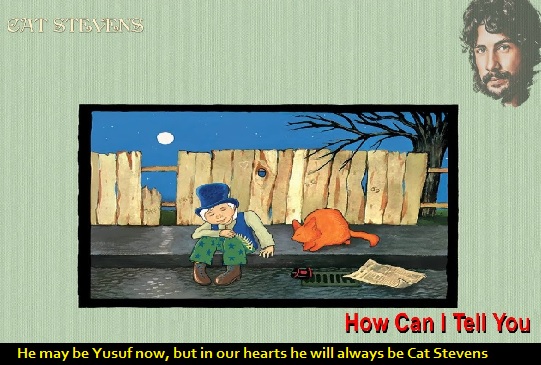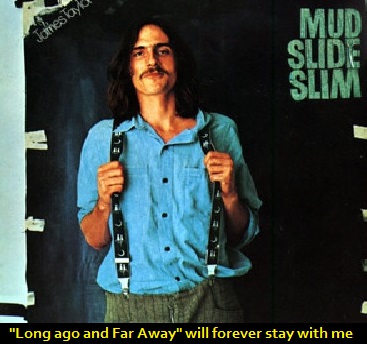The year was 1973 and I was sitting with my high school friend Freddie listening to “How can I tell you” by Cat Stevens. As we listened, we wondered what our lives would be like. Who would we marry? Would we have children? Well, time and our lives have answered these questions for us. As we were listening to this song at that time in 1973, Freddie had a huge crush on a girl in our class named Faith, but as the song said, he did not have the courage to tell her. So we listened as Cat Stevens asked her the question and Freddie hoped that he might someday get the courage to ask her to listen to this song and its message (he never did).
Please click on the song below and, as you listen to it, please reminisce with me about how we felt in the early 70s when we listened to this wonderful song and some of us had crushes on people in our class.
Cat Stevens was born Steven Demetre Georgiou in London England on July 21, 1948. He was the youngest child of a Greek Cypriot father and a Swedish mother. Stevens was (and is) a musical icon for our baby boomer years. His heartfelt lyrics and soulful melodies resonated deeply with our baby boomer teenage years and with audiences worldwide. His ability to blend folk, pop, and rock created a unique sound that was both looking in for us and universally relatable. Songs like “Wild World,” “Father and Son,” and “Morning Has Broken” became anthems of our 1970s era, speaking to the complexities of life, love, and personal growth. These songs accompanied us from High School to College and beyond.
Cats’ voice, a warm and inviting tenor, conveyed a sense of sincerity and vulnerability that touched our baby boomer high school hearts. His lyrics often explored themes of searching for meaning, navigating relationships, and the quest for inner peace, which resonated with the cultural and social upheavals of the 1970s. At a time when many were questioning societal norms and seeking deeper truths, Stevens’ music provided a comforting and contemplative refuge.
Moreover, Stevens’ conversion to Islam and subsequent name change to Yusuf Islam, added a layer of authenticity to his artistry. His willingness to share his spiritual and existential struggles made his music even more poignant and relatable. In essence, Cat Stevens’ ability to capture the human experience with such grace and honesty is why his music touched our baby boomer hearts during the 1970s and continues to do so today.
If you know a baby boomer who could use a gentle look back, please play this Cat Stevens song for him/her and reminisce together. We may not be young high schoolers anymore, but we are here and we love our past memories.


